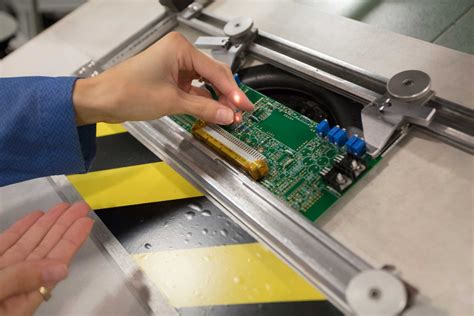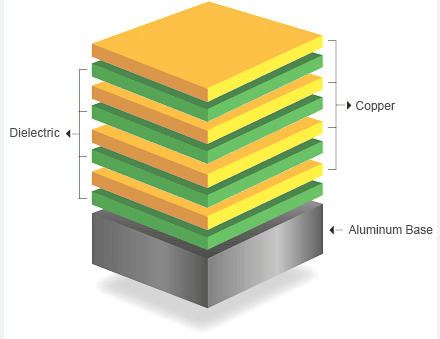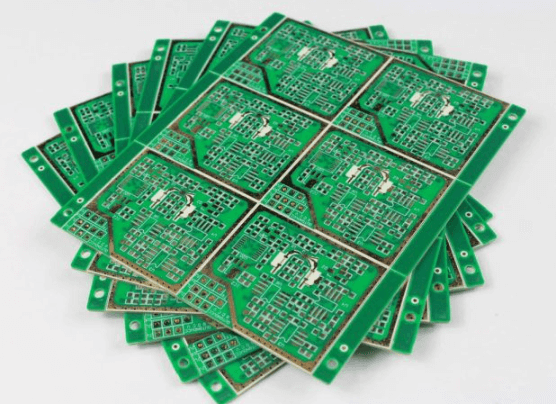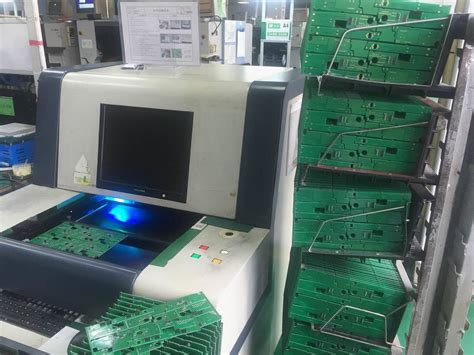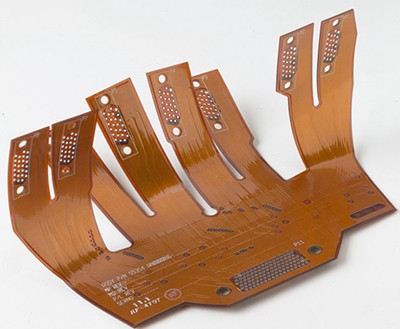Accelerating Innovation: Fast Turn PCB Fabrication Solutions
Key Takeaways
In the rapidly evolving tech landscape, fast turn PCB fabrication emerges as a crucial catalyst for innovation. By significantly shortening the pcb manufacturing cycle, companies can accelerate their product development timelines and swiftly bring new innovations to market. This expedited process not only reduces the pcb manufacturing cost but also empowers pcb manufacturing companies to maintain a competitive edge through agile and efficient production methods. The integration of cutting-edge technologies in pcb manufacturing further enhances speed and reliability, reinforcing the pivotal role of rapid PCB fabrication in modern electronics. These advances streamline workflows for engineers and product developers, ensuring that novel concepts transition smoothly from prototypes to finished products. By understanding these key elements, you can appreciate how fast turn PCB solutions foster a more innovative and dynamic pcb manufacturing business landscape.
Introduction to Fast Turn PCB Fabrication
In the fast-paced tech industry, time is of the essence when it comes to getting your products from concept to market. This is where fast turn PCB fabrication plays a pivotal role. By significantly reducing the time required for pcb manufacturing, companies can accelerate their development cycles and stay ahead of the competition.
Fast turn PCB fabrication leverages advanced processes and technologies to deliver high-quality printed circuit boards in a fraction of the time compared to traditional methods. Whether you are an engineer, a product developer, or a part of a pcb manufacturing business, understanding the benefits and intricacies of fast turn PCB production can greatly enhance your operational efficiency.
“Speed in pcb manufacturing not only shortens development timelines but also empowers innovation. The faster you can prototype, the quicker you can iterate and improve your designs.”
One of the most compelling advantages of fast turn PCB fabrication is its impact on reducing pcb manufacturing cost. By streamlining production processes and minimizing downtime, companies can achieve significant cost savings. Additionally, rapid fabrication allows pcb manufacturing companies to respond swiftly to market demands, delivering products with shorter lead times.
A quick overview of key advantages:
| Advantage | Description |
|---|---|
| Speed | Faster prototyping leads to quicker product development |
| Cost-efficiency | Reduces overall pcb manufacturing cost |
| Innovation | Enables rapid iterations and design improvements |
By adopting fast turn PCB solutions, you not only reduce your time-to-market but also enhance your capability for innovation. It fundamentally reshapes how your team approaches pcb manufacturing, driving agility and responsiveness across all stages of product development.
Understanding these principles provides a robust foundation for exploiting the full potential of fast turn PCB fabrication in any technology-driven venture.
Benefits of Fast Turn PCB Manufacturing
Fast turn PCB manufacturing offers a plethora of advantages, making it an essential strategy for engineers and product developers. One of the most significant benefits is the dramatic reduction in product development cycles. By utilizing the services of established pcb manufacturing companies, you can transform your designs into functional prototypes in a fraction of the time traditionally required. This acceleration not only speeds up time-to-market but also allows for quicker iterations, fostering a more agile development process.
Moreover, fast turn PCB fabrication can substantially lower your overall pcb manufacturing cost. With rapid prototype availability, design flaws can be identified and rectified promptly, reducing the need for costly revisions and ensuring that final products meet stringent quality standards from the outset. Businesses engaging in pcb manufacturing can also enjoy greater flexibility, enabling short runs and custom orders without compromising on lead times.
Another notable advantage is enhanced innovation potential. By shortening development timelines, companies can experiment with more designs and bring innovative solutions to market faster than ever before. This is particularly vital in today’s fast-paced tech landscape where staying ahead of competition is paramount. Fast turn PCB services are a game-changer for any pcb manufacturing business striving to maintain a competitive edge.
For more information on how fast turn PCB solutions can benefit your business, visit this page.
Key Processes in Accelerated PCB Production
Fast turn PCB fabrication hinges on a series of streamlined processes designed to enhance efficiency and reduce production time. Central to this approach is the use of advanced software tools that facilitate quick and accurate design, simulation, and validation. Once designs are finalized, automation takes over in key stages such as copper plating, etching, and drilling, ensuring consistency and precision. The role of high-quality materials cannot be overstated; these materials are essential for supporting high-speed electronic functions without compromising reliability.
Additionally, the integration of rigorous quality control procedures at each stage helps in mitigating errors early on, which in turn keeps the overall pcb manufacturing cost under control. Leading pcb manufacturing companies often employ real-time monitoring systems that provide instant feedback and adjustments to maintain optimal performance.
Collaboration between designers, engineers, and manufacturers is another crucial element that speeds up the production cycle. This collaboration ensures that potential issues are identified and resolved promptly. Moreover, the adaptability to handle various types of boards—from single-layer to multi-layer—allows for a diverse range of applications, making these processes invaluable to any pcb manufacturing business.
Incorporating these streamlined methodologies, many companies have successfully elevated their competitive edge by significantly reducing their product development time without compromising on quality or increasing costs excessively. This makes accelerated PCB production not just a possibility but a business imperative in today’s fast-paced tech industry.
Cutting-Edge Technologies in Rapid Circuit Board Fabrication
As you navigate the world of pcb manufacturing, understanding the cutting-edge technologies that drive rapid circuit board fabrication is crucial. Advances in automation, machinery, and materials are revolutionizing the pcb manufacturing industry, enabling pcb manufacturing companies to produce high-quality boards at unprecedented speeds.
One such technology is the implementation of automated optical inspection (AOI) systems, which significantly reduce errors by thoroughly scanning each circuit board for defects. Additionally, laser direct imaging (LDI) technology enhances precision during the photolithography stage, ensuring complex designs are accurately transferred onto boards with minimal human intervention.
Furthermore, advancements in computer-aided design (CAD) software facilitate efficient layout and simulation processes, allowing designers to quickly iterate on their designs and identify potential issues before manufacturing begins. This not only lowers pcb manufacturing cost but also accelerates time-to-market for new products.
Another key innovation is the development of high-speed pick-and-place machines that can accurately position thousands of components per hour, drastically reducing assembly times. When you integrate these technologies into your pcb manufacturing business, you gain a competitive edge by delivering faster prototyping and production cycles.
By leveraging these state-of-the-art tools and techniques, you can continually push the boundaries of what’s possible in modern electronics, ensuring your products remain at the forefront of innovation.
Case Studies: Success Stories of Fast Turn PCB Implementation
Fast turn PCB manufacturing has revolutionized the tech industry by dramatically enhancing product development cycles. Numerous pcb manufacturing companies have capitalized on these rapid solutions, delivering groundbreaking products in record time. For instance, a leading consumer electronics firm harnessed rapid PCB production to launch an innovative smartwatch within months instead of years, cutting down their pcb manufacturing cost significantly while staying ahead of the competition. Similarly, a start-up focused on IoT devices utilized fast turn PCBs to prototype and iterate its sensor technology swiftly, enabling them to secure essential funding and partnerships quickly. These success stories underscore how accelerated PCB manufacturing businesses are pivotal in reducing time-to-market and fostering a culture of innovation. By leveraging cutting-edge processes and technologies, companies are not only improving their workflows but also transforming their strategic capabilities in the modern electronics landscape.
Industry Best Practices for Efficient PCB Production
To achieve optimal results in PCB manufacturing, adhering to industry best practices is essential. The first step involves meticulously planning the design and layout, ensuring that the schematic is clear and all components are accurately placed. Leveraging advanced software tools for simulation can prevent costly errors and streamline the development process.
Next, engaging with reliable PCB manufacturing companies can significantly impact your project’s success. These companies often provide valuable insights and feedback that can help refine your design before production. It’s also crucial to factor in PCB manufacturing cost early in the planning stages to avoid budget overruns, ensuring that high-quality materials are selected without compromising on cost-effectiveness.
Implementing rigorous quality control measures throughout the production cycle is another cornerstone of efficient PCB fabrication. This includes regular inspections, testing completed boards under various conditions, and maintaining detailed records of each batch produced. Automated testing solutions can further enhance reliability and reduce human error.
Finally, staying updated with industry trends and innovations can give your PCB manufacturing business a competitive edge. Adopting new technologies like 3D printing for prototypes or flexible PCBs can accelerate production timelines while maintaining high standards of quality. By integrating these best practices, you not only boost efficiency but also enhance the overall value proposition of your products in the market.
The Role of Fast Turn PCBs in Prototyping and Product Development
In the fast-paced world of technology, fast turn PCB fabrication has become indispensable for efficient prototyping and product development. By significantly reducing lead times, PCB manufacturing companies empower engineers to transition swiftly from concept to prototype. This accelerated process allows for rapid iteration and fine-tuning, which is critical for delivering innovative products to market quickly.
With reduced PCB manufacturing cost, development teams can allocate resources more effectively, enabling more frequent testing phases without straining budgets. Moreover, fast turn PCB manufacturing solutions enhance flexibility, allowing you to make design adjustments on the fly without substantial delays. This can be particularly beneficial in adapting to market demands or integrating new technologies seamlessly.
The streamlined workflows facilitated by rapid PCB production also contribute to a collaborative environment where cross-functional teams can work concurrently on different aspects of the project. This holistic approach not only speeds up development but also ensures higher-quality outcomes.
By leveraging these advantages, your PCB manufacturing business can maintain a competitive edge, driving continuous innovation and keeping pace with evolving industry standards. In an environment where time-to-market is a crucial determinant of success, fast turn PCBs are instrumental in turning imaginative ideas into tangible realities swiftly and cost-effectively.
Conclusion
In conclusion, fast turn PCB fabrication is revolutionizing the tech industry by significantly enhancing the speed and efficiency of product development. By leveraging cutting-edge technologies and streamlined processes, PCB manufacturing companies provide solutions that drastically reduce time-to-market. This accelerated approach not only facilitates quicker prototyping but also enables innovation at a pace previously unattainable. For engineers and product developers, integrating fast turn PCB production within their workflows offers a competitive edge in this rapidly evolving landscape. Despite potential concerns about PCB manufacturing cost, the benefits of rapid prototyping and streamlined development are clear, making this approach invaluable for those seeking to maintain leadership in the electronically-driven market. As a result, adapting to these industry best practices ensures that your projects are not just faster to develop but also more innovative and robust, cementing your position as a leader in the highly competitive world of electronics.
FAQs
Q: What is the benefit of fast turn PCB fabrication over traditional methods?
A: Fast turn PCB fabrication significantly accelerates the product development cycle, allowing you to prototype and modify designs quickly. This speed reduces the overall time-to-market and enhances your ability to innovate and respond to market demands swiftly.
Q: How do PCB manufacturing companies ensure quality in fast turn production?
A: PCB manufacturing companies employ various advanced technologies such as automated optical inspection (AOI) and X-ray inspection to maintain high quality. These technologies ensure that even at an accelerated pace, the integrity and functionality of the boards are not compromised.
Q: What are the typical PCB manufacturing costs associated with fast turn fabrication?
A: The PCB manufacturing cost for fast turn solutions can be higher compared to standard timelines due to the expedited processes and specialized equipment required. However, these costs are often offset by the shorter development cycles and faster access to market opportunities.
Q: How does fast turn PCB manufacturing impact businesses in competitive markets?
A: By leveraging fast turn PCB manufacturing, your business can outpace competitors through quicker innovation cycles. This agility is crucial in technology-driven industries where timely product launches can determine market leadership.
Ready to experience accelerated PCB production firsthand?
For more information on how fast turn PCB fabrication can revolutionize your product development, please click here.



